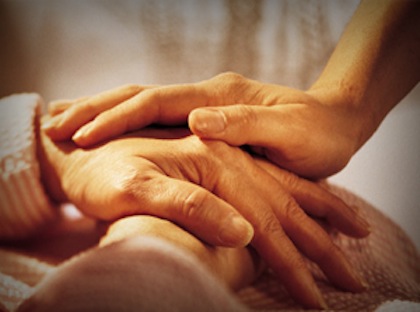The Bizzell Group (Bizzell) continues to demonstrate a strong commitment to advancing and assisting in substantive public discourse around suicide and suicide prevention. Through various contracts, Bizzell works with organizations, Federal clients, non-profits and partners to make an impact with the hope of reducing suicide rates across the country. Some of Bizzell’s work in the area of suicide prevention includes: American Indian and Alaskan Native suicide, military suicide and Arctic region suicide.
The American Indian/Alaskan Native communities have strikingly higher rates of suicides than the overall population in the U.S. The Indian Health Service identifies suicides as the second leading cause of death among AI/AN youth (5 and 24 years old). These AI/AN adolescents are also at greater risk for suicide contagion and suicide clusters, which can be particularly devastating for the often close-knit and rural AI/AN communities. Bizzell examined the research on suicide clusters and contagion in general and within AI/AN communities.
In addition to researching rates of suicide among American Indian/Alaskan Native populations, Bizzell has supported suicide prevention efforts among Veteran and Service member populations. According to a recent study by the Department of Veterans Affairs, roughly 20 veterans a day nationwide commit suicide. Researchers concluded that veterans are at a 21 percent higher risk for suicide than civilian populations. In 2014, the latest year available, more than 7,400 veterans took their own lives, accounting for 18 percent of all suicides in America. Veterans make up less than 9 percent of the U.S. population. Military suicide also has a significant impact on the family members left behind. The University of Southern California found “that military connected adolescents have a higher rate of suicidal thoughts than their civilian counterparts, and other studies indicate that military spouses— particularly those serving as caregivers to support their wounded veterans—are more at risk to suffer mental health problems.” The untold costs of military service on family members is difficult to measure. The National Military Family Association, a nonprofit that serves a quarter of a million military relatives, reported “hearing about an increasing number of stories about family members killing themselves.”
Bizzell recognizes that high suicide rates are not limited to American Indian/Alaskan Native populations or military communities; suicide rates in the Arctic are among the highest in the world. Historically, indigenous people in circumpolar regions had very low rates of death by suicide. However, there is currently no other region that suicide has had such a strong impact and social burden on than in indigenous populations—specifically those in circumpolar regions. The World Health Organization (WHO) estimates that suicide accounts for roughly 800,000 deaths per year worldwide—although rates differ within countries according to geography,gender, ethnicity and cultural variables. Greenland and the arctic regions of the United States, Canada and Russia have considerably higher suicide rates than the non-Arctic Regions, and where data is available by ethnicity (Alaska, Canada and Russia), the increased risk of suicide in indigenous communities is evident. Bizzell is assisting RISING SUN, an initiative under the U.S. chairmanship of the Arctic Council that is designated to identify a toolkit of common outcomes to be used in evaluating suicide prevention efforts to assess the key correlates associated with suicide prevention intervention across Arctic states. The goal is to generate shared knowledge that will aid health workers in better serving circumpolar communities, and help policymakers measure progress, evaluate interventions, and identify regional and cultural challenges to implementation.




